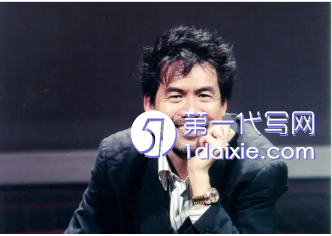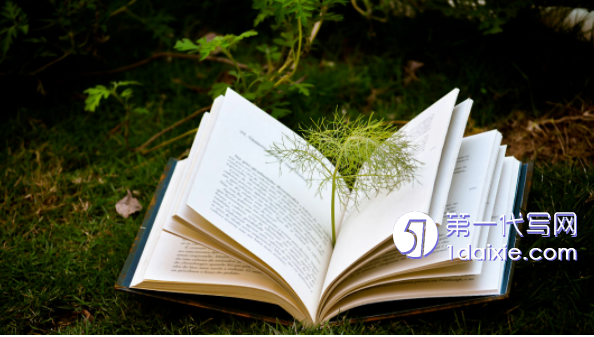本文是一篇英语论文,本文从合作原则的视角出发,结合萨义德东方主义的相关理论,对《蝴蝶君》中具有代表性的24组人物会话片段进行了会话含义分析,探讨黄哲伦如何利用人物对话批判西方传统思维对东方的刻板印象,以及如何表现剧作家对东西方平等交流的渴望和诉求。
CHAPTER I INTRODUCTION
1.1 Brief Introduction to David Henry Hwang
David Henry Hwang is an outstanding contemporary American playwright,famous for his play M.Butterfly in the international theater circle.Hwang is a prolificwriter,writing on a wide range of subjects.His main works including Fresh off theBoat(1979),which describes the problem of Chinese belonging;The Dance and theRailroad(1981),which reflects the early history of Chinese immigrants;FamilyDevotions(1981)and Golden Child(1996),which are based on Hwang’s own familyhistory;Yellow Face(2007),uncovering the racial discrimination in show business;M.Butterfly(1986)and Chinglish(2011),which depict the cultural conflict between theEast and the West.In addition to drama,Hwang also writes operas and musicals,suchas 1000 Airplanes on the Roof(1988)and The Voyage(1992).
In 1957,David Henry Hwang was born to a middle-class Chinese family in LosAngeles.His father,from Shanghai,was a banker with a college education in theUnited States.His mother is a Hakka from the Philippines.Since his mother was apianist,Hwang received music education at an early age,starting to play the violin atthe age of seven and accompanying the school musical in high school.His musicalaccomplishment laid a good foundation for his future creation and adaptation ofmusicals.After graduating from high school,Hwang attended Stanford University,inwhich he majored in English and developed a strong interest in theater.In the summerof 1978,he participated in the first Padua Hills Playwrights’Festival,where hestudied creative writing under Sam Shepard and Maria Irene Fornes.In the spring of1979,Fresh off the Boat,written and directed by Hwang was staged in the lounge ofhis dorm building.Then,he sent the script to 1979 Playwrights Conference of theO’Neill Theater Center.In 1980,the play Fresh off the Boat premiered at Joseph PappPublic Theater in New York,and won an Obie Award the same year.The success ofFresh off the Boat laid the foundation for Hwang to become a prominent playwright.

1.2 Brief Introduction to M.Butterfly
In all of Hwang’s works,M.Butterfly is undoubtedly the most influential andmost profound work.The play won a number of theatrical awards,and the playwrightthus entered the mainstream of American theater and was hailed by the TimeMagazine as the first important playwright in American public life after Arthur Miller(Jin 196).Western media such as Variety China and The New York Times havedescribed M.Butterfly as a bridge between the history and culture of the Eastern andWestern world with a grand concept and theme.M.Butterfly is based on a true story.In the epilogue to the play,Hwang mentions the ins and outs of the play’s creation.One day in May 1986,while chatting with a friend,he learned that a French diplomathad been accused of spying for another government.The diplomat fell in love with aPeking Opera performer who was a spy.During the twenty years they lived together,he never knew the performer was a man.Hwang later learned that the diplomat,Bernard Bouriscot,once said in an interview that he thought the performer was veryhumble and he thought it was a Chinese tradition.Hwang realized then that this wasnot a matter of convention.He recognized that the French diplomat’s ideas fit with thestereotypical depiction of Asians in most Westerners’minds.With a writer’ssensitivity,Hwang picked up the drama of this real event and came up with aframework for the story.
CHAPTER II LITERATURE REVIEW
2.1 Studies Abroad
When M.Butterfly opened on Broadway in 1988 and won a Tony Award,TheNew York Times,U.S.News&World Report,and Massachusetts Review publishedarticles by theater critics,but they did not attract much attention.After the 1990s,withthe in-depth expansion of American ethnic literature studies,reviews of M.Butterflybegan to appear in ethnic studies magazines and collections.During this period,critical studies of M.Butterfly focused on the ethnic identity of its playwright.In 1993,after David Cronenberg adapted the play into a film,M.Butterfly attracted wideattention in the literary field.
First of all,the interpretations from the perspective of gender,racial and culturalrelations between the East and the West have the following results.Rosalind Morris(1994)and Andrew Shin(2002)argue that Hwang tried to deconstruct,but insteademphasized the gender power relations and the cultural power relations between theEast and the West.Shimakawa Karen(1993)uses Bakhtin’s dialogic theory to analyzethe identity and racial issues reflected in the dialogue of M.Butterfly,which is one ofthe few articles that focuses on the play from a new theoretical perspective,but thefocus is still on the cultural relations between the East and the West.
2.2 Studies at Home
Compared with the earlier famous Chinese American writers such as MaxineHong Kingston and Frank Chin,domestic scholars started to study Hwang later.Afterthe mid-1990s,domestic scholars began to pay attention to Hwang and his plays.Inrecent years,the study of ethnic literature and Chinese Literature is closely related,and domestic universities are gradually offering the study of ethnic literature in theirpostgraduate courses,which give a large number of young scholars the opportunity tocontact this field.A search on CNKI with the theme of M.Butterfly can obtain 196learned periodical thesis and 58 dissertation thesis.The research of domestic scholarsis similar to that of foreign scholars,mainly focusing on the cultural relations betweenthe East and the West,deconstructionism and Orientalism.Besides,domestic scholarsalso interpret the play from the perspectives of intertextuality and symbol.
First of all,many scholars use Edward Said’s Orientalism theory to interpret M.Butterfly.As a Chinese American writer,Orientalism is a theory that cannot beavoided in the study of Hwang.Domestic scholars have two opposing views on theOrientalism study of M.Butterfly.On the one hand,Qiang Chunyan(2009)holds thatHwang’s effort to subvert Orientalism is a process of reorientalization,catering tocertain Western expectations of the East and defacing the image of the East.ChenYulu(2017)believes that M.Butterfly is a revolt against orientalist prejudice,but thisrevolt is not complete.At the end of the play,Song’s transformation into a male bodyechoes the long-standing image of Chinese men in mainstream American culture,which is feminine,ruthless and deceitful.On the other hand,Wang Xiaofen(2015)argues that Hwang’s subversion and deconstruction of Orientalism essentiallypromotes the mutual interpretation and integration of Eastern and Western cultures.Inaddition,Song Yanli(2015)thinks that the play reshapes the image of the East,overturns Western stereotype of“Butterfly”,and deals a severe blow to the Westerncultural hegemony.
CHAPTER III THEORETICAL FRAMEWORK...............................12
3.1 Cooperative Principle and Its Four Maxims........................12
3.2 Conversational Implicature............................................14
CHAPRER IV THE CONVERSATIONAL IMPLICATURE IN M.BUTTERFLY....19
4.1 Violation of the Quality Maxim in M.Butterfly...............................20
4.2 Violation of the Quantity Maxim in M.Butterfly...................................22
CHAPTER V FEATURES OF THE CONVERSATIONAL IMPLICATURE IN M.BUTTERFLY........................................32
5.1 Calculability of Conversational Implicature in M.Butterfly..............................32
5.2 Cancellability of Conversational Implicature in M.Butterfly............................34
CHAPTER VI EFFECTS OF THE CONVERSATIONALIMPLICATURE IN M.BUTTERFLY
6.1 The Portrayal of the Image of Main Characters
Characters are the essence of a drama,without which it is difficult to create.Inliterary works,writers usually use various means to create character images,andsuccessful character shaping can make the works enduring.In the process of shapingcharacters,dialogues of them play a great role in highlighting their characters.At thesame time,conversational implicature generated by the characters through violatingthe cooperative principle can express the inner conflicts of them from differentperspectives,so as to make the characters’images more vivid.In M.Butterfly,almostevery Westerner is arrogant when it comes to the Oriental,while Song,the Chineseactor,is clever in interacting with Westerners.In the following part,the author willillustrate the important role of conversational implicature in portraying the images ofthe main characters.
6.1.1 The Image of Arrogant Imperialists
In order to maintain a rational image of the West,Westerners,according to theirown experience,belittle the opposite Eastern“others”and establish the irrational anddegenerate image of the East.In M.Butterfly,there are five Western characters,andevery one of them is arrogant.Here is an example to illustrate the Westerners’arrogance.

CHAPTER VII CONCLUSION
The study of the conversational implicature in M.Butterfly interprets the artisticfeatures of the play,which provides a new perspective for the interpretation of literaryworks.Based on Grice’s conversational implicature theory,this thesis uses a varietyof research methods to analyze the production of the conversational implicature in M.Butterfly from the perspective of characters’violation of the cooperative principle andits sub-maxims.Apart from that,this thesis also studies the characters’intention ofviolating the cooperative principle,the features of conversational implicature in M.Butterfly,and the effects of conversational implicature in the play.Through theresearch of this thesis,the following conclusions can be drawn.
First of all,influenced by Orientalism,Westerners stereotype Oriental women asbeautiful and submissive Madame Butterfly.Different from the traditional images ofOriental women,Song Liling in M.Butterfly ruthlessly tears up the Westerners’stereotypical image of Orientals.By subverting Orientalism,Hwang aims to advocatethat in an increasingly multicultural world,both the East and the West shouldeliminate prejudice and treat other cultures with a broad mind.In the meantime,through the dialogue between Song and the Judge,Hwang expects this play is able tocorrect Westerners’misunderstanding of the Oriental culture and calls on the equalcommunication between the East and the West.
reference(omitted)
